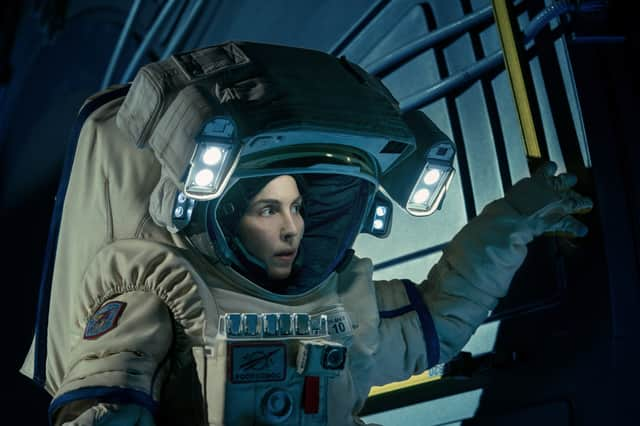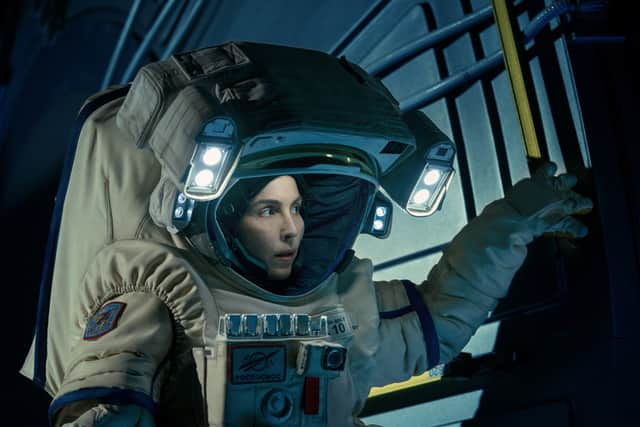Constellation episodes 1-3 review: stars don’t align as awkward structure hinders creepy Apple sci-fi thriller


Apple TV sci-fi thriller Constellation, starring Noomi Rapace and Jonathan Banks, is a creepy sci-fi thriller that owes a lot to classics of the genre from Alien to Event Horizon.
The series starts strong, it’s a compelling twisting tale of an astronaut Jo Ericsson (Rapace), who becomes stuck on a damaged International Space Station when an experiment into a new state of matter goes disastrously wrong.
Advertisement
Hide AdAdvertisement
Hide AdJo stays on the ISS as there’s not enough room on the escape shuttle for all the crew, and is tasked with making her way back to Earth safely, with her experiment intact.
But things start to get real weird real quick, as Jo’s sense of reality begins to break down - like a scene from Shutter Island, she begins to have visions of her daughter getting lost in a blizzard whilst she is powerless to help - she has flashbacks to her time on the ISS after returning to Earth, and struggles to understand what is real and what is imagined.


Back on Earth, Henry Caldera (Jonathan Banks) seems more concerned about retrieving the experiment than securing Jo’s safe return, whilst Jo’s daughter Rosie and partner Magnus desperately await good news.
Tonally this series hits the nail on the head, it’s a tightly strung tense thriller that carries high stakes - the experiment itself is clearly very dangerous and Caldera seems a little too cavalier about handling it.
Advertisement
Hide AdAdvertisement
Hide AdAnd of course Rapace is fantastic in the role of Jo, a woman being crushed by mental and physical fatigue due to her arduous space odyssey who becomes increasingly paranoid (or perhaps she’s bang on the money) that someone or something is messing with her memories.


She cuts a traumatised, harried figure as she attempts to get to the bottom of the mystery in which she has become trapped. Jo is up there with Ellen Ripley and Sarah Connor on the beleaguered women of sci-fi league tables.
Unfortunately, Constellation isn’t just a character study, it’s a plot-driven story and the plot, or rather the plot’s structure, is where it all unravels. We know from the beginning of the series that Jo makes it back from space safely, because the narrative is told through a sequence of flashbacks and flashforwards, and this eliminates a major source of the show’s tension, leaving us just to ponder what is happening to Jo’s memories.
In this, the audience is constantly up against it, roughshod across this patchy narrative forwards and backwards in time without enough context to understand what it is exactly that we are watching. It’s like going to an abstract art exhibition on an alien planet, or watching Rick and Morty’s Interdimensional Cable - without enough grounding the series quickly becomes a slog as you try to keep up.
Advertisement
Hide AdAdvertisement
Hide AdCertainly, Constellation will find its audience among the sci-fi fandom, and the series does have plenty going for it, from breathtaking cinematography to a brilliant lead performance. But in trying to be too clever by half, Constellation leaves you feeling dumb, and numb.
Constellation episodes 1-3 will be released on Apple TV+ on Wednesday February 21, with the final five episodes being released weekly.
Comment Guidelines
National World encourages reader discussion on our stories. User feedback, insights and back-and-forth exchanges add a rich layer of context to reporting. Please review our Community Guidelines before commenting.
